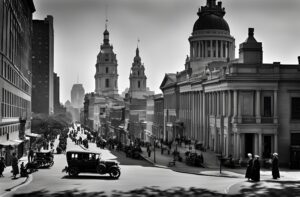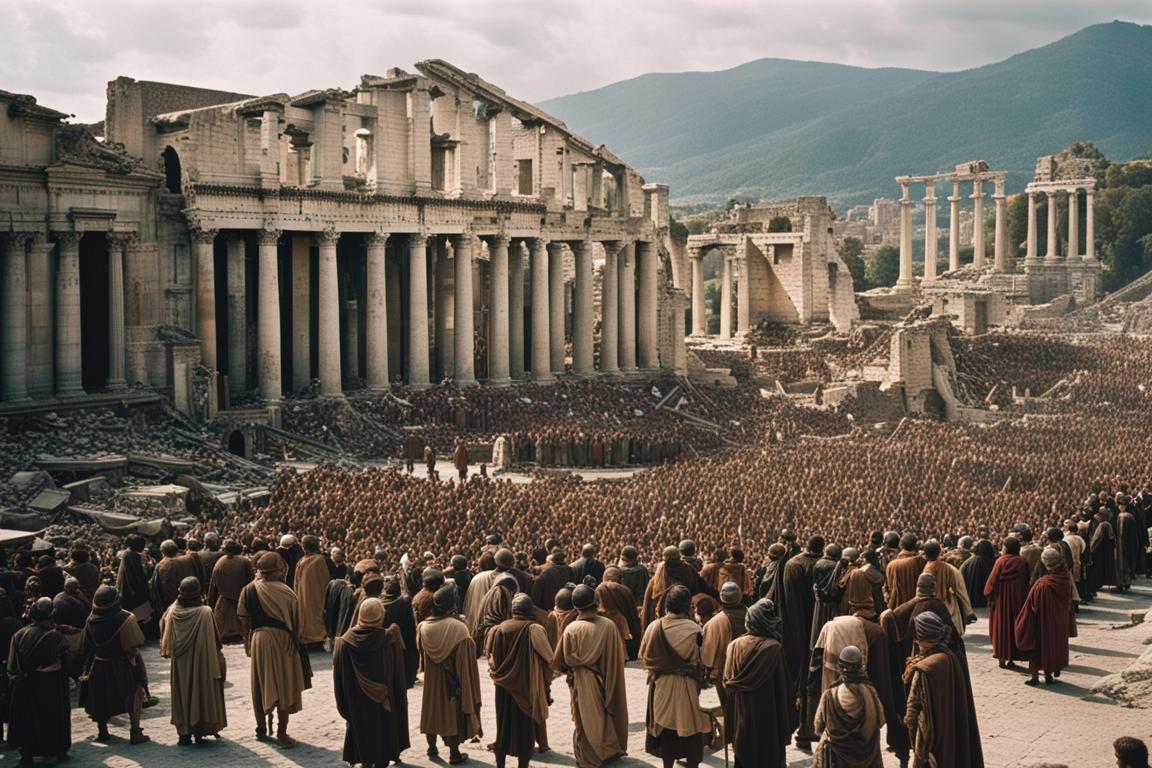
In an alternate history where the American Revolution never occurred, the United States remains a collection of British colonies, deeply intertwined with the British Empire. This narrative explores a series of events that reshape human progress and global dynamics.

The year is 1830, and the colonies, stretching from the bustling ports of New York to the plantations of Georgia, are vibrant yet restless under the Crown’s rule. The Industrial Revolution, originating in Britain, has crossed the Atlantic, transforming the colonies into industrial powerhouses. Factories line the Hudson River, and the clatter of machinery echoes through the streets of Boston. However, prosperity is unevenly distributed, with wealth concentrated in the hands of British loyalists and colonial elites. The working class, comprising both European immigrants and enslaved Africans, toils in harsh conditions, fueling simmering discontent.
As the colonies grow, so does their influence within the British Empire. The colonial assembly, a body with limited power, begins to push for greater autonomy. The Crown, eager to maintain control over its most lucrative territories, grants the colonies representation in the British Parliament. This move, intended to placate the colonists, instead ignites a fervor for reform. The colonies’ representatives, charismatic and eloquent, form alliances with reform-minded members of Parliament, advocating for policies that benefit both the colonies and the empire.
By the mid-19th century, the colonies have become a driving force behind the abolitionist movement. The moral and economic contradictions of slavery are laid bare, and the colonies’ representatives, alongside British abolitionists, push for emancipation. The debate is fierce, but the tide of history is inexorable. In 1857, the British Empire enacts the Emancipation Act, freeing all enslaved people within its territories. The colonies, now a beacon of freedom, attract waves of immigrants seeking new opportunities in a land where liberty and industry promise prosperity.

The colonies’ economic might and political influence continue to grow, and by the dawn of the 20th century, they are the jewel in the British crown. Colonial cities, from Philadelphia to Charleston, become centers of innovation and culture, rivaling London and Paris. The colonies’ universities produce leading thinkers, artists, and scientists, contributing to a global exchange of ideas that fuels progress across the empire.
However, the colonies’ success breeds new challenges. The vast distances and diverse interests of the colonial territories strain their relationship with the British government. Calls for greater self-governance grow louder, and the colonies’ representatives demand a federation that allows for local autonomy while maintaining allegiance to the Crown. The British government, recognizing the need for reform, agrees to a historic compromise.
In 1922, the British North American Federation is established, granting the colonies a degree of self-rule unprecedented in the empire’s history. The federation, with its capital in Philadelphia, becomes a model of democratic governance, balancing regional interests with imperial unity. The colonies remain loyal to the Crown, but their identity is distinct, a blend of British tradition and colonial innovation.
As the 20th century progresses, the federation plays a pivotal role on the world stage. During the World Wars, the colonies’ industrial capacity and manpower are crucial to the Allied efforts. The federation’s soldiers fight bravely alongside British and Commonwealth forces, forging bonds of camaraderie and shared sacrifice.
In the post-war era, the federation emerges as a leader in the global movement for decolonization. Drawing on their own experience of achieving autonomy within the empire, the federation’s leaders advocate for peaceful transitions to self-rule for other colonies. The British Empire, once the largest in history, evolves into a Commonwealth of Nations, united by shared values and mutual respect.
By the 21st century, the British North American Federation is a thriving, multicultural society. Its cities are melting pots of cultures and ideas, driving innovation in technology, medicine, and the arts. The federation’s universities and research institutions are at the forefront of scientific discovery, leading efforts to address global challenges such as climate change and inequality.
The federation’s influence extends beyond its borders, as it champions human rights and democracy on the world stage. Its leaders, respected and admired, work tirelessly to build a more just and equitable world. The federation’s story is one of resilience and transformation, a testament to the power of unity and the enduring spirit of a people who, though they never broke free from the Crown, forged their own path within the empire.




